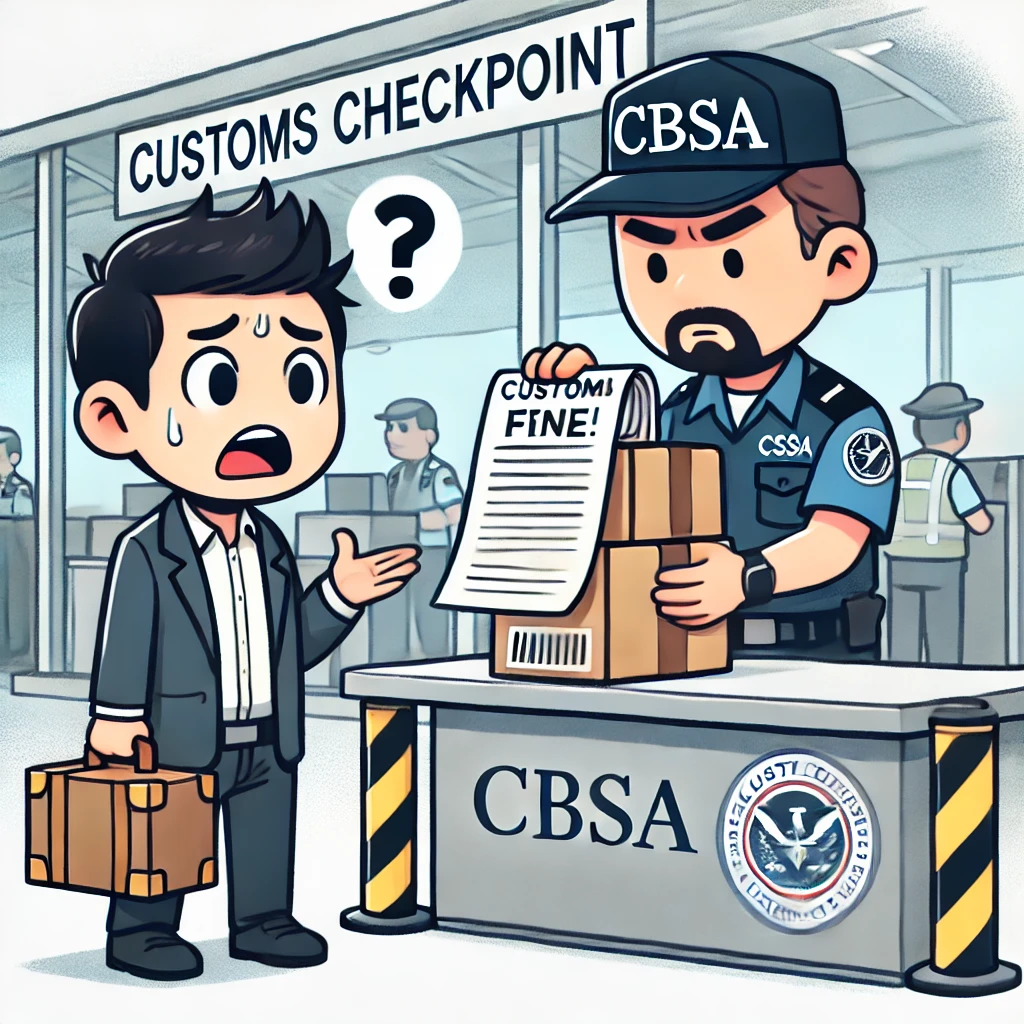If your business deals with imports or exports, you need to understand the administrative monetary penalty system (AMPs). The Canada Border Services Agency (CBSA) uses this system to issue fines when companies break trade rules. These penalties aren’t just small fees—they can grow into significant financial setbacks if violations continue.

CBSA designed the administrative monetary penalty system to encourage compliance. Instead of taking companies to court, they issue fines based on the severity of the infraction. While this system helps enforce trade laws, it also creates challenges for businesses that don’t fully understand CBSA’s regulations.
What Is the Administrative Monetary Penalty System?
CBSA enforces customs and trade rules through the administrative monetary penalty system. Businesses importing or exporting goods must follow strict regulations, including proper product classification, valuation, and documentation. If a company violates these rules, CBSA can issue a monetary penalty instead of pursuing legal action.
This system allows CBSA to address violations quickly and fairly. Instead of lengthy court cases, fines are applied based on the type and frequency of the infraction. The goal isn’t just punishment—it’s to encourage compliance and prevent repeat offenses.
Who Does the Administrative Monetary Penalty System Affect?
AMPs apply to businesses and individuals involved in cross-border trade. If you import goods into Canada or export products internationally, you must follow CBSA’s rules. The administrative monetary penalty system affects:
- Importers – Businesses that bring goods into Canada must classify them correctly and declare their full value.
- Exporters – Companies shipping products abroad need to ensure all required documentation is in order.
- Customs brokers – These professionals help businesses navigate CBSA regulations, but errors on their end can still lead to fines.
- Freight forwarders and logistics companies – Those responsible for moving goods across borders must follow strict shipping rules.
Even businesses that don’t directly handle imports or exports can be affected. If your suppliers or partners violate CBSA rules, it can delay shipments and increase costs.
Common Violations That Trigger Administrative Monetary Penalties
CBSA issues AMPs for a wide range of violations. Some of the most common include:
- Misclassifying goods – Using the wrong tariff code can lead to underpayment of duties.
- Incorrect valuation – Underreporting the value of imported goods to pay lower taxes is a major offense.
- Failure to provide required permits – Certain goods require special authorization before crossing the border.
- Late or missing paperwork – CBSA requires proper documentation for every shipment.
- Non-compliance with trade agreements – If a company claims tariff benefits under a free trade agreement but doesn’t meet the requirements, they can face penalties.
The administrative monetary penalty system applies fines based on the severity of these violations. Some errors result in minor penalties, while repeated offenses lead to much larger fines.
How CBSA Issues Administrative Monetary Penalties
AMPs aren’t always immediate. In some cases, CBSA issues a warning first, allowing businesses to correct their mistake. However, repeated or serious violations can result in large fines right away.
Penalties are structured into different levels:
- Level 1 Penalties – These are for first-time or minor infractions. Fines can start as low as a few hundred dollars.
- Level 2 Penalties – If the same violation occurs again, CBSA increases the fine. It can range from thousands to tens of thousands of dollars.
- Level 3 Penalties – For repeated or severe violations, fines can be substantial, sometimes exceeding $100,000.
CBSA also has the right to detain shipments if violations continue. This can cause significant supply chain disruptions, especially for businesses that rely on timely deliveries.

Why the Administrative Monetary Penalty System Matters
Many businesses underestimate the impact of AMPs. These penalties aren’t just about paying a fine—they can have long-term consequences. Frequent violations can lead to:
- Higher compliance scrutiny – CBSA may flag your company for additional inspections, causing shipment delays.
- Supply chain disruptions – Fines or detentions can impact delivery schedules and upset customers.
- Increased costs – Beyond the fines themselves, legal fees and compliance efforts can add up.
- Loss of trade privileges – Serious or repeated offenses can lead to restrictions on importing or exporting certain goods.
The administrative monetary penalty system is designed to protect Canada’s trade integrity. However, it also means businesses must take compliance seriously to avoid costly mistakes.
How to Avoid Administrative Monetary Penalties
Businesses that import or export goods can take proactive steps to prevent AMPs. Here’s how to stay compliant and avoid costly penalties:
- Double-check classification codes – Ensure every product is assigned the correct tariff code. Misclassification is one of the most common reasons for penalties.
- Accurately report the value of goods – Underreporting can lead to heavy fines and increased scrutiny.
- Stay updated on regulations – CBSA trade rules change, and businesses must keep up to avoid unintentional violations.
- Use licensed customs brokers – A professional can help navigate complex import/export laws.
- Keep records organized – CBSA may request past shipping records, so maintain accurate documentation.
- Train your team – Employees handling imports or exports should know CBSA compliance requirements.
Final Thoughts on the Administrative Monetary Penalty System
The administrative monetary penalty system is a key enforcement tool for CBSA. It holds businesses accountable for trade violations without resorting to criminal charges. However, these fines can be costly and disruptive.
Understanding AMPs and taking proactive steps to comply with CBSA regulations is essential. Businesses prioritizing compliance avoid unnecessary penalties, protect their supply chains, and maintain smooth cross-border operations. Investing in proper training, accurate paperwork, and expert guidance can save thousands in fines and keep your business running without interruption.
Author: Mark Ellison
Bio: Mark Ellison is a trade compliance consultant with over a decade of experience helping businesses navigate CBSA regulations and avoid costly penalties.


